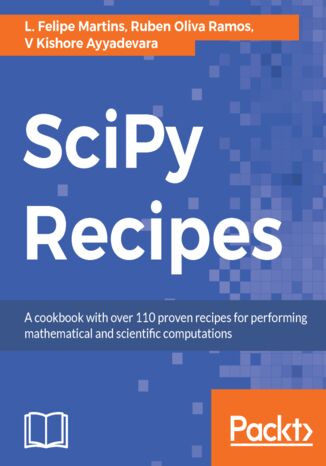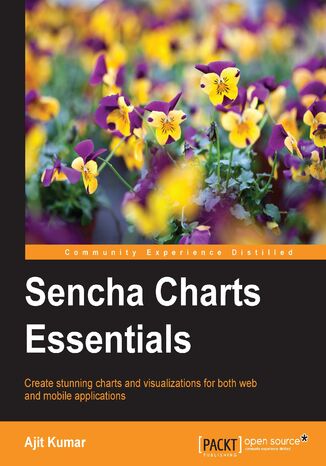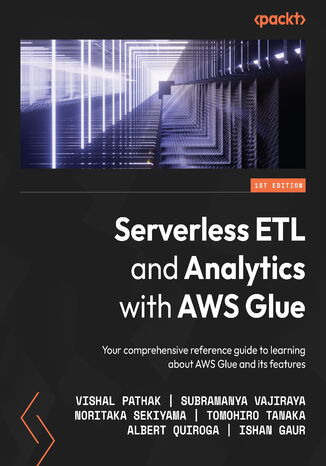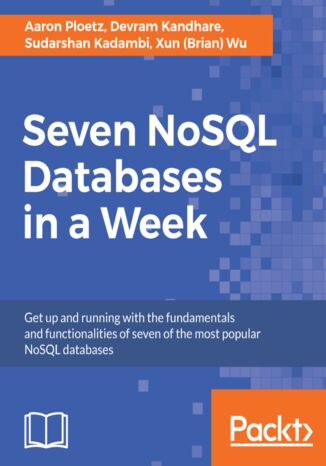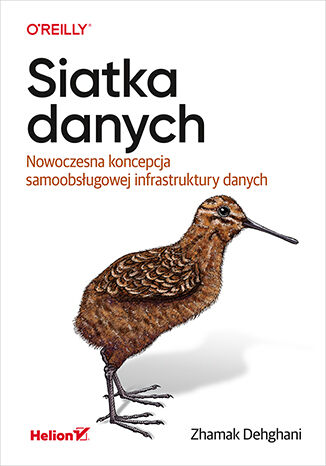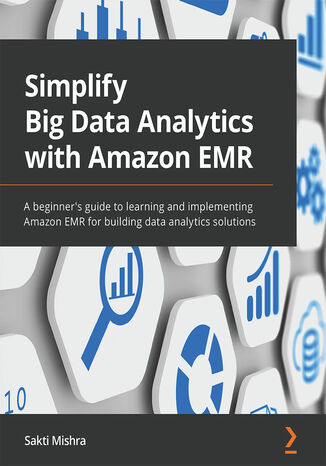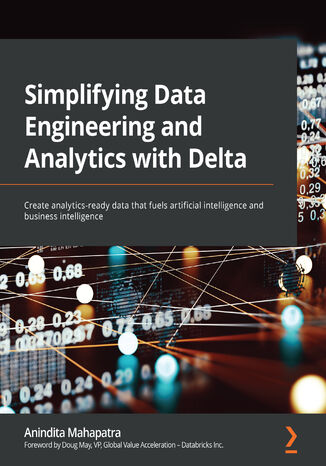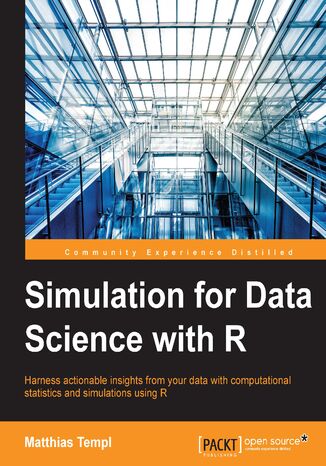Kategorie
Ebooki
-
Biznes i ekonomia
- Bitcoin
- Bizneswoman
- Coaching
- Controlling
- E-biznes
- Ekonomia
- Finanse
- Giełda i inwestycje
- Kompetencje osobiste
- Komputer w biurze
- Komunikacja i negocjacje
- Mała firma
- Marketing
- Motywacja
- Multimedialne szkolenia
- Nieruchomości
- Perswazja i NLP
- Podatki
- Polityka społeczna
- Poradniki
- Prezentacje
- Przywództwo
- Public Relation
- Raporty, analizy
- Sekret
- Social Media
- Sprzedaż
- Start-up
- Twoja kariera
- Zarządzanie
- Zarządzanie projektami
- Zasoby ludzkie (HR)
-
Dla dzieci
-
Dla młodzieży
-
Edukacja
-
Encyklopedie, słowniki
-
E-prasa
- Architektura i wnętrza
- BHP
- Biznes i Ekonomia
- Dom i ogród
- E-Biznes
- Ekonomia i finanse
- Ezoteryka
- Finanse
- Finanse osobiste
- Firma
- Fotografia
- Informatyka
- Kadry i płace
- Kobieca
- Komputery, Excel
- Księgowość
- Kultura i literatura
- Naukowe i akademickie
- Ochrona środowiska
- Opiniotwórcze
- Oświata
- Podatki
- Podróże
- Psychologia
- Religia
- Rolnictwo
- Rynek książki i prasy
- Transport i Spedycja
- Zdrowie i uroda
-
Historia
-
Informatyka
- Aplikacje biurowe
- Bazy danych
- Bioinformatyka
- Biznes IT
- CAD/CAM
- Digital Lifestyle
- DTP
- Elektronika
- Fotografia cyfrowa
- Grafika komputerowa
- Gry
- Hacking
- Hardware
- IT w ekonomii
- Pakiety naukowe
- Podręczniki szkolne
- Podstawy komputera
- Programowanie
- Programowanie mobilne
- Serwery internetowe
- Sieci komputerowe
- Start-up
- Systemy operacyjne
- Sztuczna inteligencja
- Technologia dla dzieci
- Webmasterstwo
-
Inne
-
Języki obce
-
Kultura i sztuka
-
Lektury szkolne
-
Literatura
- Antologie
- Ballada
- Biografie i autobiografie
- Dla dorosłych
- Dramat
- Dzienniki, pamiętniki, listy
- Epos, epopeja
- Esej
- Fantastyka i science-fiction
- Felietony
- Fikcja
- Humor, satyra
- Inne
- Klasyczna
- Kryminał
- Literatura faktu
- Literatura piękna
- Mity i legendy
- Nobliści
- Nowele
- Obyczajowa
- Okultyzm i magia
- Opowiadania
- Pamiętniki
- Podróże
- Poemat
- Poezja
- Polityka
- Popularnonaukowa
- Powieść
- Powieść historyczna
- Proza
- Przygodowa
- Publicystyka
- Reportaż
- Romans i literatura obyczajowa
- Sensacja
- Thriller, Horror
- Wywiady i wspomnienia
-
Nauki przyrodnicze
-
Nauki społeczne
-
Podręczniki szkolne
-
Popularnonaukowe i akademickie
- Archeologia
- Bibliotekoznawstwo
- Filmoznawstwo
- Filologia
- Filologia polska
- Filozofia
- Finanse i bankowość
- Geografia
- Gospodarka
- Handel. Gospodarka światowa
- Historia i archeologia
- Historia sztuki i architektury
- Kulturoznawstwo
- Lingwistyka
- Literaturoznawstwo
- Logistyka
- Matematyka
- Medycyna
- Nauki humanistyczne
- Pedagogika
- Pomoce naukowe
- Popularnonaukowa
- Pozostałe
- Psychologia
- Socjologia
- Teatrologia
- Teologia
- Teorie i nauki ekonomiczne
- Transport i spedycja
- Wychowanie fizyczne
- Zarządzanie i marketing
-
Poradniki
-
Poradniki do gier
-
Poradniki zawodowe i specjalistyczne
-
Prawo
- BHP
- Historia
- Kodeks drogowy. Prawo jazdy
- Nauki prawne
- Ochrona zdrowia
- Ogólne, kompendium wiedzy
- Podręczniki akademickie
- Pozostałe
- Prawo budowlane i lokalowe
- Prawo cywilne
- Prawo finansowe
- Prawo gospodarcze
- Prawo gospodarcze i handlowe
- Prawo karne
- Prawo karne. Przestępstwa karne. Kryminologia
- Prawo międzynarodowe
- Prawo międzynarodowe i zagraniczne
- Prawo ochrony zdrowia
- Prawo oświatowe
- Prawo podatkowe
- Prawo pracy i ubezpieczeń społecznych
- Prawo publiczne, konstytucyjne i administracyjne
- Prawo rodzinne i opiekuńcze
- Prawo rolne
- Prawo socjalne, prawo pracy
- Prawo Unii Europejskiej
- Przemysł
- Rolne i ochrona środowiska
- Słowniki i encyklopedie
- Zamówienia publiczne
- Zarządzanie
-
Przewodniki i podróże
- Afryka
- Albumy
- Ameryka Południowa
- Ameryka Środkowa i Północna
- Australia, Nowa Zelandia, Oceania
- Austria
- Azja
- Bałkany
- Bliski Wschód
- Bułgaria
- Chiny
- Chorwacja
- Czechy
- Dania
- Egipt
- Estonia
- Europa
- Francja
- Góry
- Grecja
- Hiszpania
- Holandia
- Islandia
- Litwa
- Łotwa
- Mapy, Plany miast, Atlasy
- Miniprzewodniki
- Niemcy
- Norwegia
- Podróże aktywne
- Polska
- Portugalia
- Pozostałe
- Przewodniki po hotelach i restauracjach
- Rosja
- Rumunia
- Słowacja
- Słowenia
- Szwajcaria
- Szwecja
- Świat
- Turcja
- Ukraina
- Węgry
- Wielka Brytania
- Włochy
-
Psychologia
- Filozofie życiowe
- Kompetencje psychospołeczne
- Komunikacja międzyludzka
- Mindfulness
- Ogólne
- Perswazja i NLP
- Psychologia akademicka
- Psychologia duszy i umysłu
- Psychologia pracy
- Relacje i związki
- Rodzicielstwo i psychologia dziecka
- Rozwiązywanie problemów
- Rozwój intelektualny
- Sekret
- Seksualność
- Uwodzenie
- Wygląd i wizerunek
- Życiowe filozofie
-
Religia
-
Sport, fitness, diety
-
Technika i mechanika
Audiobooki
-
Biznes i ekonomia
- Bitcoin
- Bizneswoman
- Coaching
- Controlling
- E-biznes
- Ekonomia
- Finanse
- Giełda i inwestycje
- Kompetencje osobiste
- Komunikacja i negocjacje
- Mała firma
- Marketing
- Motywacja
- Nieruchomości
- Perswazja i NLP
- Podatki
- Polityka społeczna
- Poradniki
- Prezentacje
- Przywództwo
- Public Relation
- Sekret
- Social Media
- Sprzedaż
- Start-up
- Twoja kariera
- Zarządzanie
- Zarządzanie projektami
- Zasoby ludzkie (HR)
-
Dla dzieci
-
Dla młodzieży
-
Edukacja
-
Encyklopedie, słowniki
-
E-prasa
-
Historia
-
Informatyka
-
Inne
-
Języki obce
-
Kultura i sztuka
-
Lektury szkolne
-
Literatura
- Antologie
- Ballada
- Biografie i autobiografie
- Dla dorosłych
- Dramat
- Dzienniki, pamiętniki, listy
- Epos, epopeja
- Esej
- Fantastyka i science-fiction
- Felietony
- Fikcja
- Humor, satyra
- Inne
- Klasyczna
- Kryminał
- Literatura faktu
- Literatura piękna
- Mity i legendy
- Nobliści
- Nowele
- Obyczajowa
- Okultyzm i magia
- Opowiadania
- Pamiętniki
- Podróże
- Poezja
- Polityka
- Popularnonaukowa
- Powieść
- Powieść historyczna
- Proza
- Przygodowa
- Publicystyka
- Reportaż
- Romans i literatura obyczajowa
- Sensacja
- Thriller, Horror
- Wywiady i wspomnienia
-
Nauki przyrodnicze
-
Nauki społeczne
-
Popularnonaukowe i akademickie
-
Poradniki
-
Poradniki zawodowe i specjalistyczne
-
Prawo
-
Przewodniki i podróże
-
Psychologia
- Filozofie życiowe
- Komunikacja międzyludzka
- Mindfulness
- Ogólne
- Perswazja i NLP
- Psychologia akademicka
- Psychologia duszy i umysłu
- Psychologia pracy
- Relacje i związki
- Rodzicielstwo i psychologia dziecka
- Rozwiązywanie problemów
- Rozwój intelektualny
- Sekret
- Seksualność
- Uwodzenie
- Wygląd i wizerunek
- Życiowe filozofie
-
Religia
-
Sport, fitness, diety
-
Technika i mechanika
Kursy video
-
Bazy danych
-
Big Data
-
Biznes, ekonomia i marketing
-
Cyberbezpieczeństwo
-
Data Science
-
DevOps
-
Dla dzieci
-
Elektronika
-
Grafika/Wideo/CAX
-
Gry
-
Microsoft Office
-
Narzędzia programistyczne
-
Programowanie
-
Rozwój osobisty
-
Sieci komputerowe
-
Systemy operacyjne
-
Testowanie oprogramowania
-
Urządzenia mobilne
-
UX/UI
-
Web development
-
Zarządzanie
Podcasty
Analiza danych
Luiz Felipe Martins, V Kishore Ayyadevara, Ruben Oliva Ramos
With the SciPy Stack, you get the power to effectively process, manipulate, and visualize your data using the popular Python language. Utilizing SciPy correctly can sometimes be a very tricky proposition. This book provides the right techniques so you can use SciPy to perform different data science tasks with ease.This book includes hands-on recipes for using the different components of the SciPy Stack such as NumPy, SciPy, matplotlib, and pandas, among others. You will use these libraries to solve real-world problems in linear algebra, numerical analysis, data visualization, and much more. The recipes included in the book will ensure you get a practical understanding not only of how a particular feature in SciPy Stack works, but also of its application to real-world problems. The independent nature of the recipes also ensure that you can pick up any one and learn about a particular feature of SciPy without reading through the other recipes, thus making the book a very handy and useful guide.
Vishal Pathak, Subramanya Vajiraya, Noritaka Sekiyama, Tomohiro Tanaka, ...
Organizations these days have gravitated toward services such as AWS Glue that undertake undifferentiated heavy lifting and provide serverless Spark, enabling you to create and manage data lakes in a serverless fashion. This guide shows you how AWS Glue can be used to solve real-world problems along with helping you learn about data processing, data integration, and building data lakes.Beginning with AWS Glue basics, this book teaches you how to perform various aspects of data analysis such as ad hoc queries, data visualization, and real-time analysis using this service. It also provides a walk-through of CI/CD for AWS Glue and how to shift left on quality using automated regression tests. You’ll find out how data security aspects such as access control, encryption, auditing, and networking are implemented, as well as getting to grips with useful techniques such as picking the right file format, compression, partitioning, and bucketing. As you advance, you’ll discover AWS Glue features such as crawlers, Lake Formation, governed tables, lineage, DataBrew, Glue Studio, and custom connectors. The concluding chapters help you to understand various performance tuning, troubleshooting, and monitoring options.By the end of this AWS book, you’ll be able to create, manage, troubleshoot, and deploy ETL pipelines using AWS Glue.
Aaron Ploetz, Devram Kandhare, Sudarshan Kadambi, Xun (Brian) Wu
This is the golden age of open source NoSQL databases. With enterprises having to work with large amounts of unstructured data and moving away from expensive monolithic architecture, the adoption of NoSQL databases is rapidly increasing. Being familiar with the popular NoSQL databases and knowing how to use them is a must for budding DBAs and developers.This book introduces you to the different types of NoSQL databases and gets you started with seven of the most popular NoSQL databases used by enterprises today. We start off with a brief overview of what NoSQL databases are, followed by an explanation of why and when to use them. The book then covers the seven most popular databases in each of these categories: MongoDB, Amazon DynamoDB, Redis, HBase, Cassandra, In?uxDB, and Neo4j. The book doesn't go into too much detail about each database but teachesyou enough to get started with them.By the end of this book, you will have a thorough understanding of the different NoSQL databases and their functionalities, empowering you to select and use the rightdatabase according to your needs.
Siatka danych. Nowoczesna koncepcja samoobsługowej infrastruktury danych
Dostęp do danych jest warunkiem rozwoju niejednej organizacji. Aby w pełni skorzystać z ich potencjału i uzyskać dzięki nim konkretną wartość, konieczne jest odpowiednie zarządzanie danymi. Obecnie stosowane rozwiązania w tym zakresie nie nadążają już za złożonością dzisiejszych organizacji, rozprzestrzenianiem się źródeł danych i rosnącymi aspiracjami inżynierów, którzy rozwijają techniki sztucznej inteligencji i analizy danych. Odpowiedzią na te potrzeby może być siatka danych (Data Mesh), jednak praktyczna implementacja tej koncepcji wymaga istotnej zmiany myślenia. Ta książka szczegółowo wyjaśnia paradygmat siatki danych, a przy tym koncentruje się na jego praktycznym zastosowaniu. Zgodnie z tym nowatorskim podejściem dane należy traktować jako produkt, a dziedziny - jako główne zagadnienie. Poza wyjaśnieniem paradygmatu opisano tu zasady projektowania wysokopoziomowej architektury komponentów siatki danych, a także przedstawiono wskazówki i porady dotyczące ewolucyjnej realizacji siatki danych w organizacji. Tematyka ta została potraktowana wszechstronnie: omówiono kwestie technologiczne, organizacyjne, jak również socjologiczne i kulturowe. Dzięki temu jest to cenna lektura zarówno dla architektów i inżynierów, jak i dla badaczy, analityków danych, wreszcie dla liderów i kierowników zespołów. W książce: wyczerpujące wprowadzenie do paradygmatu siatki danych siatka danych i jej komponenty projektowanie architektury siatki danych opracowywanie i realizacja strategii siatki danych zdecentralizowany model własności danych przejście z hurtowni i jezior danych do rozproszonej siatki danych Siatka danych: kolejny etap rozwoju technologii big data!
Amazon EMR, formerly Amazon Elastic MapReduce, provides a managed Hadoop cluster in Amazon Web Services (AWS) that you can use to implement batch or streaming data pipelines. By gaining expertise in Amazon EMR, you can design and implement data analytics pipelines with persistent or transient EMR clusters in AWS.This book is a practical guide to Amazon EMR for building data pipelines. You'll start by understanding the Amazon EMR architecture, cluster nodes, features, and deployment options, along with their pricing. Next, the book covers the various big data applications that EMR supports. You'll then focus on the advanced configuration of EMR applications, hardware, networking, security, troubleshooting, logging, and the different SDKs and APIs it provides. Later chapters will show you how to implement common Amazon EMR use cases, including batch ETL with Spark, real-time streaming with Spark Streaming, and handling UPSERT in S3 Data Lake with Apache Hudi. Finally, you'll orchestrate your EMR jobs and strategize on-premises Hadoop cluster migration to EMR. In addition to this, you'll explore best practices and cost optimization techniques while implementing your data analytics pipeline in EMR.By the end of this book, you'll be able to build and deploy Hadoop- or Spark-based apps on Amazon EMR and also migrate your existing on-premises Hadoop workloads to AWS.
Delta helps you generate reliable insights at scale and simplifies architecture around data pipelines, allowing you to focus primarily on refining the use cases being worked on. This is especially important when you consider that existing architecture is frequently reused for new use cases.In this book, you’ll learn about the principles of distributed computing, data modeling techniques, and big data design patterns and templates that help solve end-to-end data flow problems for common scenarios and are reusable across use cases and industry verticals. You’ll also learn how to recover from errors and the best practices around handling structured, semi-structured, and unstructured data using Delta. After that, you’ll get to grips with features such as ACID transactions on big data, disciplined schema evolution, time travel to help rewind a dataset to a different time or version, and unified batch and streaming capabilities that will help you build agile and robust data products.By the end of this Delta book, you’ll be able to use Delta as the foundational block for creating analytics-ready data that fuels all AI/BI use cases.
Simulation for Data Science with R. Effective Data-driven Decision Making
Data Science with R aims to teach you how to begin performing data science tasks by taking advantage of Rs powerful ecosystem of packages. R being the most widely used programming language when used with data science can be a powerful combination to solve complexities involved with varied data sets in the real world.The book will provide a computational and methodological framework for statistical simulation to the users. Through this book, you will get in grips with the software environment R. After getting to know the background of popular methods in the area of computational statistics, you will see some applications in R to better understand the methods as well as gaining experience of working with real-world data and real-world problems. This book helps uncover the large-scale patterns in complex systems where interdependencies and variation are critical. An effective simulation is driven by data generating processes that accurately reflect real physical populations. You will learn how to plan and structure a simulation project to aid in the decision-making process as well as the presentation of results.By the end of this book, you reader will get in touch with the software environment R. After getting background on popular methods in the area, you will see applications in R to better understand the methods as well as to gain experience when working on real-world data and real-world problems.

